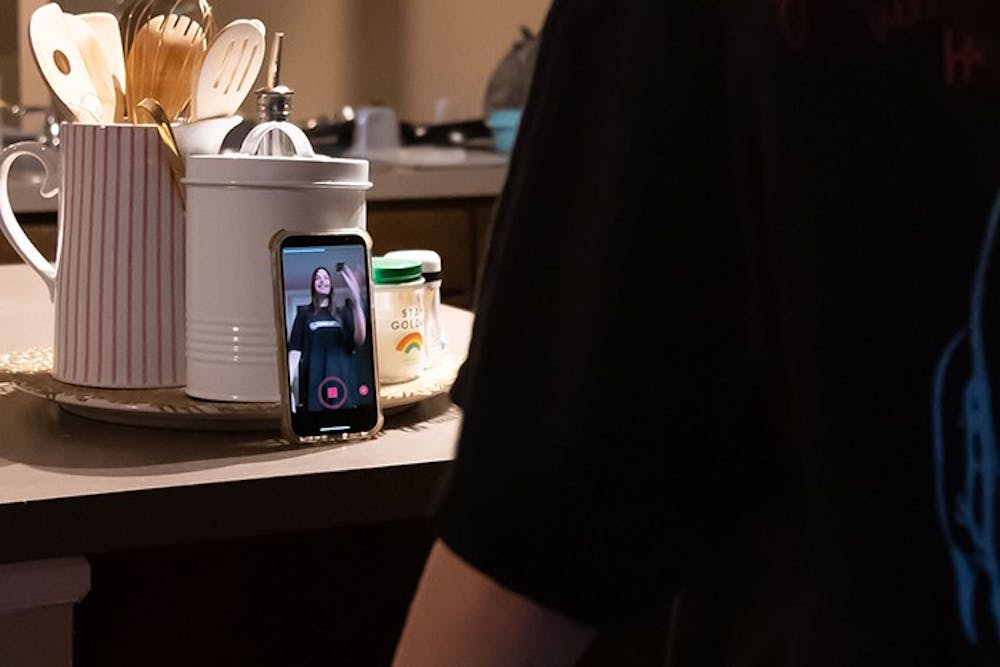Over the past year, TikTok has taken over the social media world, becoming a central aspect of entertainment and communication.
The social media app came after other entertainment platforms of its kind, such as Vine and Musical.ly, which featured similar content, such as short skits, dancing videos and lip-syncing.
AJ Chadha, company co-founder and brand outreach manager for influencer marketing company OutreachX, said “there’s always been its rise and fall" about the demise of Musical.ly and the successful rise of TikTok.
“It's a new platform, and a lot of people are constantly on it daily. It's a platform where creators can help support other creators or artists. And it's a place where people can express themselves freely and catch up on trends,” Chadha said.
The app, described by Chadha as a sort of combination of Vine and Musical.ly, utilizes features such as filters, video effects, hashtags, popular tunes and content monetization to hook audiences in what Chadha calls a “scrolling paralysis.”
OutreachX, which was started last fall, works to pair brands such as Casetify with social media influencers to advertise their products. TikTok has become a tool in the consumer world, and even institutions such as the University of South Carolina have hopped on the wave.
Aidan Baker, a third-year marketing student, has worked as the University of South Carolina’s social media intern for the last two years and runs the school’s different accounts, including TikTok.
Baker said the university introduced the platform to its range of media in an effort to “meet students where they are.”
“One of the things we wanted to do was kind of display, like, student life in a way that was more student-driven and directly student-based,” Baker said.
USC’s TikTok account serves as a marketing tool aimed at prospective students and a way for the university to connect with the current student body.
According to Baker, many prospective students, including high schoolers early in the college selection process, consider attending USC because they found the university on TikTok.
Baker said the university page features “college-centric” videos that follow trends and display student life at USC in an authentic and creative way, from a viewpoint different than on other social media platforms.
The simplistic and candid content style that captures people’s daily lives is what has made the platform so popular among young people, Baker said.
The app is popular and habitually used by a majority of people in the student demographic, according to Baker. He also said COVID-19 and quarantine propelled the app's popularity even further.
“I really think the quarantine had a lot to do with it, when everyone had nothing to do. Everyone just, like, spent their time finding random videos on TikTok, and then eventually you just get hooked,” Connor Brew, a third-year sports and entertainment management student, said.
Brew has amounted over 570,000 followers on his TikTok account @brewskibrew and over 21,000 followers on Instagram because of his comedy skits.
Like many students, Brew joined the app over quarantine, and his page gained traction after four months, when a video received 8.5 million views.
His original comedy videos, which take four to five hours to make, have brought him brand deals, opportunities to travel to Los Angeles in the future and what he said he hopes will become a full-time job in content creation.
Although the app features light-hearted content, it has also given way to advocacy for social issues and beyond.
According to Baker, the app allows youth to be engaged in social movements and what is going on in the world, creating a sort of “educational hub," providing information in as little as 15 seconds.
“I think the app's done more help than harm in regards to, I think, exposing younger people to social issues and civic engagement issues,” Baker said.

